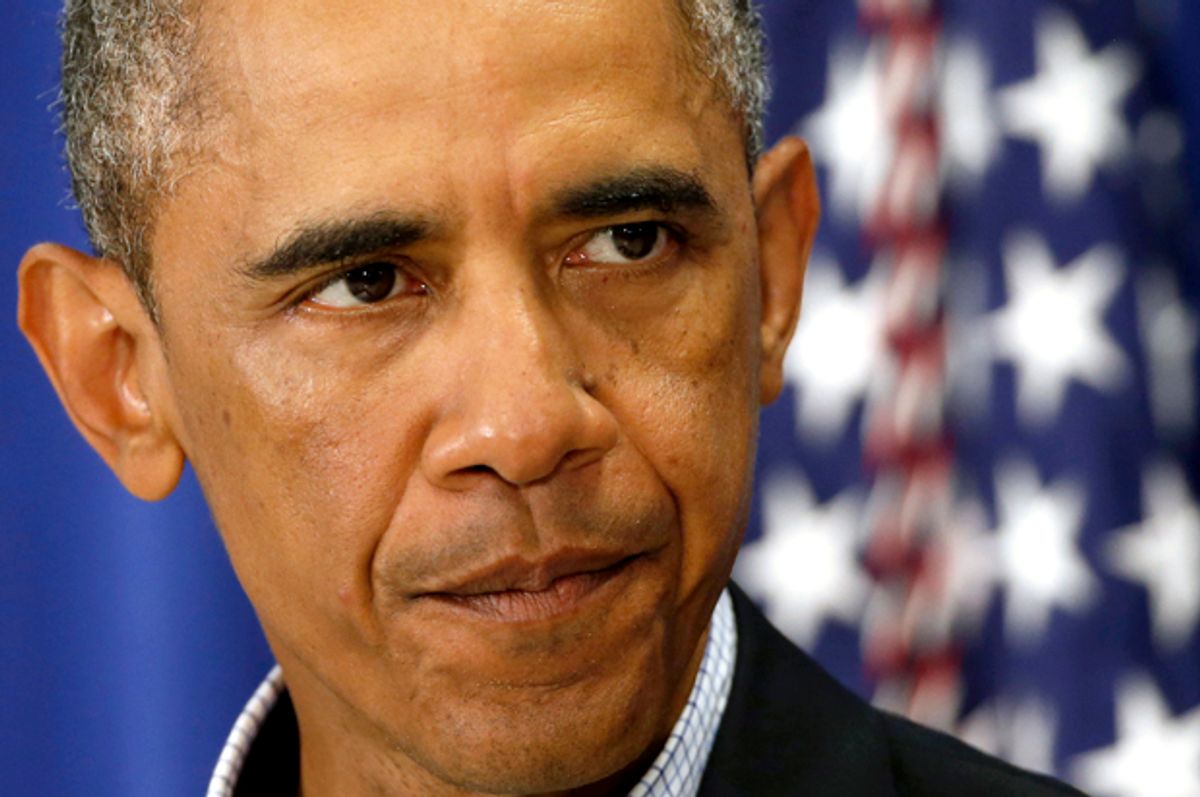In an opinion that at times read more like a partisan jeremiad than a judicial ruling, a George W. Bush-appointed federal judge ruled Tuesday that President Obama overstepped his constitutional authority with his recently unveiled executive actions on immigration.
U.S. District Court Judge Arthur Schwab, who is based in Pittsburgh, made that determination in the criminal case of Elionardo Juarez-Escobar, a Honduran man on trial for unlawful re-entry into the country. Escobar was charged after being arrested for drunk driving.
On November 20, Obama announced plans to spare up to five million unauthorized immigrants from deportation, provided they had family ties and no criminal record. Prosecutors in the Escobar case had argued that the president's action had "no effect" on cases like Escboar's.
But Schwab ruled that Obama's action went beyond what's permissible under prosecutorial discretion "because: (a) it provides for a systematic and rigid process by which a broad group of individuals will be treated differently than others based upon arbitrary classifications, rather than case-by-case examination; and (b) it allows undocumented immigrants, who fall within these broad categories, to obtain substantive rights."
Schwab also spent three pages of his 38-page ruling noting that Obama once cast doubt on the legality of executive action on immigration, but the judge conceded that Obama's earlier statements are “not dispositive of the constitutionality of his Executive Action on immigration.” ThinkProgress' Ian Millhiser points to some of the other bizarre features of the ruling:
Half of Schwab’s analysis of the Executive Action’s constitutionality is devoted to a strawman. Noting that Obama cited Congress’s failure to act on immigration in his speech announcing the new policy, Schwab devotes half of his analysis of the policy’s constitutionality to explaining that “Inaction by Congress Does Not Make Unconstitutional Executive Action Constitutional.” He’s right on this point, just as Schwab would be correct if he argued that President Obama’s authority to create this new policy does not come from a magic hat that Obama keeps in the Oval Office. But it’s somewhat curious that the judge feels the need to present Obama’s political rhetoric as if it were a constitutional argument and then tear that non-argument down.
The remainder of Schwab’s brief constitutional analysis concludes that the new policy “Goes Beyond Prosecutorial Discretion — It is Legislation.” Notably, however, Schwab cites no judicial precedents of any kind to support this conclusion.
Moreover, Millhiser notes, Schwab's opinion did not cite Arizona v. United States, in which the U.S. Supreme Court determined that the executive branch has "broad discretion" when it comes to deportation policy.
Given that Schwab's determination came in a ruling on a criminal case, it remains unclear what larger implications his opinion will have for the president's immigration policy.



Shares